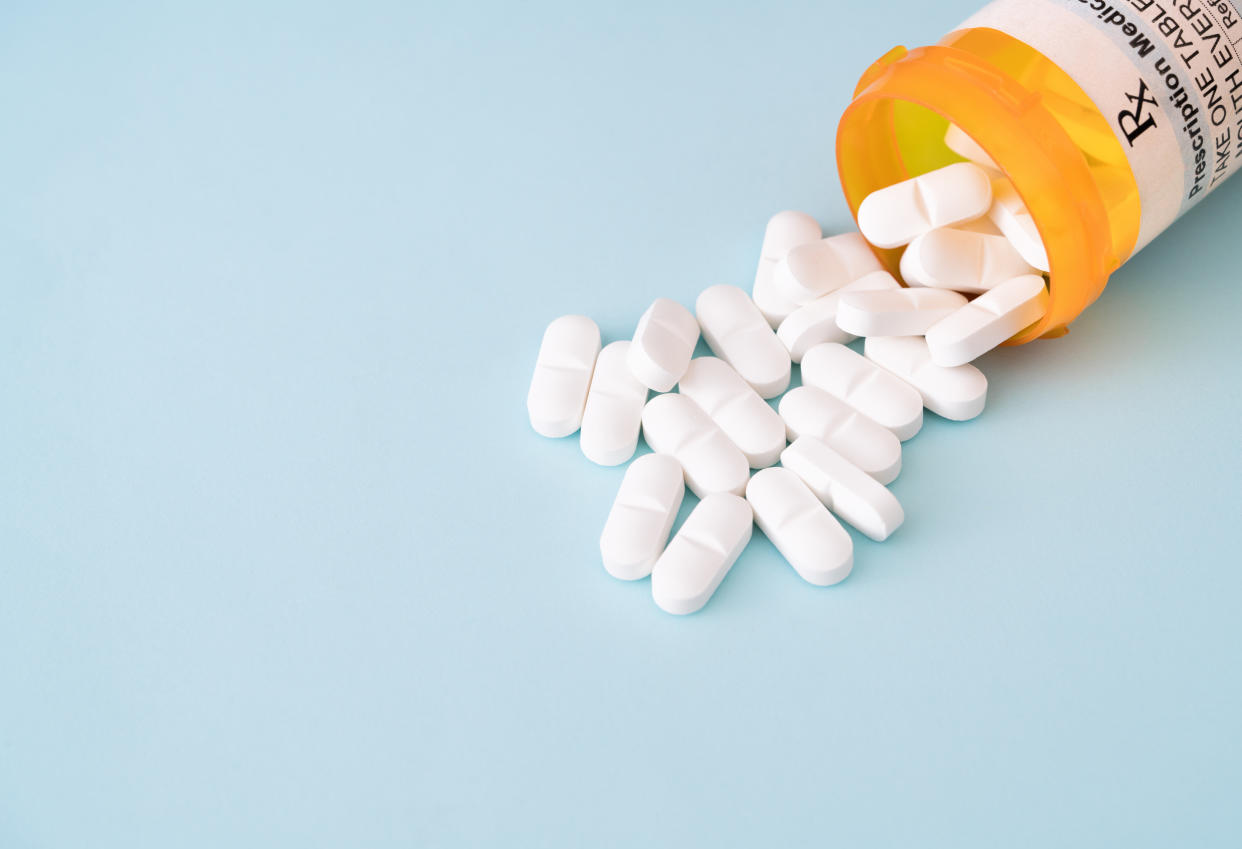'Super-gonorrhea’'is rare. But the STI is smart — and doctors are concerned.

It sounds more like a villain straight out of a comic book, but “super-gonorrhea” — better known as antibiotic-resistant gonorrhea — is real. Canada recently reported a rise in the persistent infection, including “a near-doubling of cases” showing that certain antibiotics were either less effective or not effective at all at killing Neisseria gonorrhoeae, the bacteria that causes gonorrhea.
Gonorrhea is the second-most common sexually transmitted infection (STI) in the U.S. There were nearly 650,000 cases of gonorrhea reported in 2022, according to the Centers for Disease Control and Prevention — an 11% increase since 2018. And it’s not just affecting young people: Cases of gonorrhea, chlamydia and syphilis in Americans ages 55 to 64 have more than doubled over the past decade.
That’s concerning given that almost half of U.S. gonorrhea infections in 2022 were resistant to at least one antibiotic, according to a May 2024 report on super-gonorrhea published in JAMA Network. As the author of the report put it: Gonorrhea "continues to outsmart the drugs used to fight it."
The Canadian report called antibiotic-resistant gonorrhea “a serious public health threat” and said the STI’s ability to withstand two antibiotics used to treat it, ceftriaxone and azithromycin, is a “global concern.” Cases have been reported in multiple countries beyond Canada, including the United Kingdom, France, China and Japan. The U.S. had its first cases of the superbug in 2023, in Massachusetts, with health authorities there saying it was resistant to five different antibiotics.
So where did antibiotic-resistant gonorrhea come from? How concerned should you be? And what can you do to protect yourself? Here’s what experts say.
What causes antibiotic-resistant gonorrhea?
In a nutshell, it’s “misuse of antibiotics,” Dr. Hana El Sahly, professor of molecular virology and microbiology at Baylor College of Medicine, tells Yahoo Life.
Dr. Amesh Adalja, an infectious disease specialist at the Johns Hopkins University Center for Health Security, explains that bacteria have “dominated this planet for billions of years” and over time have evolved so they can survive. “Antibiotics are often natural products produced by other microbes that they use against each other, so antibiotic resistance is a not surprising evolutionary adaptation,” he tells Yahoo Life.
He adds that humans using antibiotics “injudiciously — for unnecessary conditions, for example — can accelerate this natural evolutionary process.”
Worth noting: Although some publications refer to it as super-gonorrhea, not everyone is a fan of the term. “‘Super’ gonorrhea is not a medical term and doesn’t actually add anything to explain the phenomenon of antibiotic-resistant gonorrhea,” says Adalja.
Super-gonorrhea sounds scary. How concerned should people in the U.S. be?
Antibiotic-resistant gonorrhea is rare in the U.S., but El Sahly says it’s still important to take it seriously.
Dr. Matthew Hamill, an assistant professor of medicine at Johns Hopkins School of Medicine who specializes in STIs, agrees. “In the U.S so far we have been, relatively speaking, spared from some of the worst — our worst fears haven't come true,” he tells Yahoo Life. “We're not seeing a lot of multidrug-resistant gonorrhea.”
However, Hamill says that cases being reported globally “often can be the canary in the coal mine — it’s something we have to be alert to and pay attention to.” He points out that in other parts of the world, drug-resistant gonorrhea is more common. “People travel and people have sex when they travel,” he says. “STIs get moved around the world very effectively. It’s definitely something we need to be aware of and concerned about.”
Adalja says that everyone should be concerned about acquiring drug-resistant forms of gonorrhea because it is more difficult and complicated to treat. He adds: “It is likely that rates of antibiotic-resistant gonorrhea will increase.”
What can you do to protect yourself?
There are no vaccines that prevent gonorrhea. Instead, experts recommend taking steps to reduce the risk of getting the STI. “If you don’t have gonorrhea, you can’t get drug-resistant gonorrhea,” says Hamill, “so use tried and trusted ways such as condoms to prevent acquiring gonorrhea in the first place. It’s not very sexy talking about condoms these days, but they work.”
Along with practicing safer sex, Hamill says patients should be aware of what the CDC’s screening guidelines are on who should get tested regularly for STIs, including gonorrhea — especially given that many people with gonorrhea don’t have symptoms. When they do show up in men, symptoms include a burning sensation when peeing; white, yellow or green discharge from the penis; and in some cases painful or swollen testicles, according to the CDC. Women can also experience a painful or burning sensation when peeing, increased vaginal discharge and bleeding between periods.
After possible exposure to the STI, both El Sahly and Hamill recommend talking to a health care provider about taking doxycycline prophylactically (doxy-PEP) — meaning, taking the medication before having symptoms — which can reduce the risk of developing gonorrhea by up to 60% if taken within 72 hours of condomless sex. The prescription medication can also be obtained at sexual health clinics for free or at a low cost and is often covered by insurance.
On a public health level, El Sahly says that decreasing the misuse and overuse of antibiotics in general helps reduce the risk of antibiotic resistance, including gonorrhea. Experts add that investing in research to look into novel vaccines and treatments against gonorrhea are needed.
One promising area is molecular tests, which Hamill says look for genetic markers that can signal a gonorrhea infection is resistant to certain antibiotics so doctors can prescribe the best treatment to tackle it. “I think the future is really exciting to be able to use more modern tools to look for microbial resistance,” he says, “but we’re nowhere near where we need to be.”


